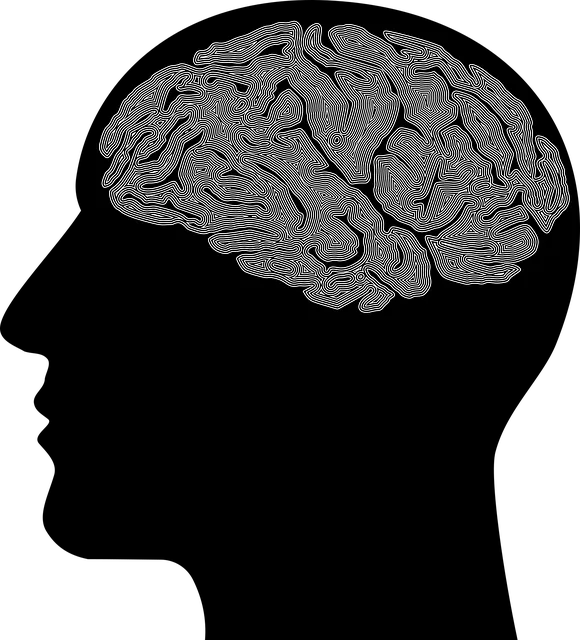Trauma impacts individuals across diverse backgrounds, leading to conditions like anxiety, depression, and PTSD. Westminster Kaiser Permanente offers a 24/7 behavioral health phone line for support, providing confidential assistance, guidance on managing trauma effects, and promotion of resilience. Their commitment to community healing includes holistic approaches, tailored support, and culturally competent healthcare providers. Individuals are encouraged to access resources, create personalized care plans, and seek specialized practices like Compassion Cultivation and Social Skills Training for long-term mental wellness.
In a world where trauma impacts millions, access to effective support services is paramount. This article explores comprehensive trauma support, focusing on the crucial role of behavioral health phone lines in immediate assistance. We delve into the successful model of Westminster Kaiser Permanente, offering a dedicated behavioral health phone number for easy access to resources. Understanding trauma and its far-reaching effects is the first step towards recovery. Learn about a step-by-step guide to accessing services and discover how continuous care enhances long-term healing.
- Understanding Trauma and Its Impact
- The Role of Behavioral Health Phone Lines
- Westminster Kaiser Permanente: A Resource for Support
- Accessing Services: A Step-by-Step Guide
- Enhancing Recovery Through Continuous Care
Understanding Trauma and Its Impact

Trauma is a profound and complex experience that can have lasting effects on an individual’s mental and emotional well-being. It’s important to understand trauma in its various forms, as it impacts people from all walks of life, including those seeking support through behavioral health services. Whether it arises from adverse childhood experiences, violent incidents, or other distressing events, trauma can disrupt a person’s sense of safety and normalcy, leading to a range of challenges such as anxiety, depression, and post-traumatic stress disorder (PTSD).
In Westminster, Kaiser Permanente offers behavioral health phone numbers accessible to those in need. However, addressing trauma requires more than just access to these services; it necessitates culturally competent care. The Healthcare Provider Cultural Competency Training plays a crucial role in ensuring that mental wellness coaching programs are effective and inclusive. By understanding the impact of cultural and social factors on mental illness and stigma reduction efforts, healthcare providers can deliver tailored support. This holistic approach not only helps individuals recover from trauma but also fosters a sense of belonging and community healing.
The Role of Behavioral Health Phone Lines

Trauma support services play a vital role in helping individuals navigate through challenging experiences and rebuild their lives. One such critical resource is the Westminster Kaiser Permanente behavioral health phone line, offering confidential and accessible support to those in need. This 24/7 service provides a safe space for people to share their stories and receive immediate assistance. Trained professionals offer guidance on managing trauma’s impact, promoting positive thinking, and enhancing resilience. By providing a simple yet powerful tool, the phone line empowers users to take control of their mental well-being.
The behavioral health phone line is especially beneficial during times of crisis or when individuals feel isolated, offering a confidential outlet for expression. It serves as a constant reminder that support is readily available, fostering a sense of security and encouraging those affected by trauma to seek the help they deserve. Moreover, this service can significantly contribute to burnout prevention by providing timely interventions and promoting healthy coping mechanisms, ensuring individuals have access to resources that boost their confidence and overall well-being.
Westminster Kaiser Permanente: A Resource for Support

Westminster Kaiser Permanente stands as a beacon of hope and healing for individuals navigating trauma and seeking support. This healthcare organization offers a comprehensive range of services, including a dedicated behavioral health phone line, accessible 24/7 to provide immediate assistance and guidance. Their approach integrates community outreach programs that foster mental health awareness, ensuring no one faces trauma alone.
Through these initiatives, Westminster Kaiser Permanente facilitates emotional healing processes, catering to diverse needs. The implementation of such programs underscores their commitment to not just treating symptoms but empowering individuals with the tools necessary for long-term resilience and well-being.
Accessing Services: A Step-by-Step Guide

Accessing trauma support services can seem daunting, but with the right guidance, individuals can find the help they need. Here’s a step-by-step process to navigate this important journey:
1. Identify Your Needs: Recognize the signs of trauma and its impact on your life. This could include persistent feelings of fear, anxiety, flashbacks, or difficulties in relationships. Understanding these symptoms will help you know when it’s time to reach out for support.
2. Explore Local Resources: Start by contacting Westminster Kaiser Permanente behavioral health phone number. They can provide information on the services available within their network and guide you towards appropriate resources. Many organizations also offer walk-in clinics or online platforms, ensuring accessibility.
3. Consider Specializations: Depending on your unique needs, explore options like Compassion Cultivation Practices, which focus on cultivating self-compassion and mindfulness to process trauma. Alternatively, Social Skills Training can help individuals develop healthy coping mechanisms and enhance their social interactions.
4. Healthcare Provider Cultural Competency Training: It’s essential to find healthcare providers who have undergone training in cultural competency, ensuring they understand the nuances of different backgrounds and can offer tailored support. This step ensures a safe and respectful environment for your healing journey.
5. Create a Plan: Once you’ve gathered information, create a plan. Decide on the services that align with your needs and goals. You might start with individual therapy, group support sessions, or a combination, depending on what feels most beneficial.
Enhancing Recovery Through Continuous Care

In the quest for enhanced recovery from trauma, continuous care plays a pivotal role. Many individuals facing traumatic experiences often require sustained support beyond initial crisis intervention. This is where dedicated trauma support services come into focus, offering a lifeline to those in need. At Westminster Kaiser Permanente behavioral health phone number, we understand that healing is not a linear process; it involves navigating complex emotions and adapting to new circumstances. Our comprehensive care model aims to provide an uninterrupted safety net, ensuring individuals receive the necessary resources for long-term recovery.
By integrating various therapeutic approaches, such as those advocated by Mental Health Policy Analysis and Advocacy groups, we address the multifaceted nature of trauma. Stress Management Workshops Organization often emphasizes techniques like mindfulness and relaxation strategies, empowering individuals to manage their stress responses effectively. This holistic approach recognizes that recovery is deeply personal and unique; it involves nurturing resilience, fostering coping mechanisms, and promoting self-care practices tailored to each individual’s journey. Through continuous care, we strive to create an environment where healing becomes a sustainable reality for those who have experienced trauma.
In conclusion, addressing trauma requires a multifaceted approach. By understanding its profound impact and leveraging resources like Westminster Kaiser Permanente’s behavioral health phone number, individuals can access vital support. Following a structured guide to accessing services and committing to continuous care enhances recovery journeys. These strategies collectively foster resilience and healing in those affected by trauma.






